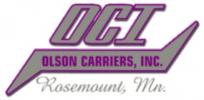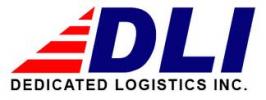Industry Update
Submitted by Bill on
Fleet Owner |July 28, 2017 by James Jaillet
Senate DOT bill, unlike House, skips changes to ELD mandate, driver breaks
A spending bill cleared by the Senate Appropriations Committee this week is free of any trucking-related policy reforms, a departure from the House’s version of the same bill, which includes several trucking policy riders.
The Senate’s 2018 fiscal year Department of Transportation appropriations does not include any changes to the coming electronic logging device mandate, nor does it include the so-called Denham Amendment, which intends to block states from enacting rest break laws for truck drivers. A separate bill in the Senate, a bill to reauthorize the Federal Aviation Administration, does include the Denham Amendment.
The House bill, passed by its Appropriations Committee earlier this month, offers livestock haulers an extra year to adopt electronic logging devices and includes the Denham Amendment provision. The House bill also blocks the Federal Motor Carrier Safety Administration from pursuing a Safety Fitness Determination rule until the agency implements required reforms to the Compliance, Safety, Accountability program. Appropriators in the House also released a report corollary to the legislation that advised FMCSA to study whether a delay of the ELD mandate is needed, particularly for smaller carriers, like owner-operators.
The Senate’s version of the bill, however, includes none of these provisions. Nor does it include any other broad trucking provisions. The bill had two amendments added Thursday regarding truck size and weight limits in North Dakota and New Hampshire. They would allow trucks weighing up to 129,000 pounds to operate in North Dakota and trucks weighing up to 99,000 pounds to operate in New Hampshire. The current national limit for gross vehicle truck weight is 80,000 pounds, though some states have allowed heavier trucks on their roadways to test increasing size and weight limits.
The Senate DOT bill has been sent to the full Senate for consideration, where amendments, such as those related to electronic logs or driver breaks, could be added.
The Senate nor the House have indicated a timeline for considering their respective bills, but if the two chambers pass bills that are not identical, legislators from both will need to confer to produce a unified bill. Trucking related reforms could also be adopted during that process.








